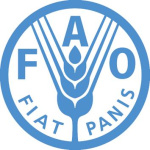- Branche: Agriculture
- Number of terms: 87409
- Number of blossaries: 0
- Company Profile:
Established in October 1945 with the objective of eliminating hunger and improving nutrition and standards of living by increasing agricultural productivity, FAO coordinates the efforts of governments and technical agencies in programs for developing agriculture, forestry, fisheries, and land and ...
An undifferentiated cell (or nucleus), such as a blastomere, that, when isolated or suitably transplanted, can develop into a complete embryo.
Industry:Biotechnology
An unregulated promoter that allows for continual transcription of its associated gene.
Industry:Biotechnology
Anatomically or physiologically adapted for particular functions or habitats.
Industry:Biotechnology
Animals having a rumen - a large digestive vat in which fibrous plant material is partially broken down by microbial fermentation, prior to digestion in a "true" stomach (the abomasum).
Industry:Biotechnology
Animals having a rumen - a large digestive vat in which fibrous plant material is partially broken down by microbial fermentation, prior to digestion in a "true" stomach (the abomasum).
Industry:Biotechnology
Antibodies have a well-defined structure. Each antibody has two identical "light" chains and two identical "heavy" chains. Each chain comprises a constant region, i.e., a region that is the same between antibodies of the same class and sub-class, and a variable region that differs between. The antigen-binding region or binding site - <i>complementarity determining region</i> - is in the variable region. The antibody can be cut by proteases into several fragments, known as Fab, Fab', and Fc.
Industry:Biotechnology
Antibodies which recognize the binding sites of other antibodies. Their binding sites are complementary to the binding sites of another immunoglobulin. When an animal becomes immune to something, it not only acquires antibodies against that something, it also acquires antibodies against those antibodies. This forms a network of antibodies which can all bind to each other to various degrees, helping to regulate the immune response. Some allergic responses are in part due to the breakdown of this sort of regulation.
Industry:Biotechnology
